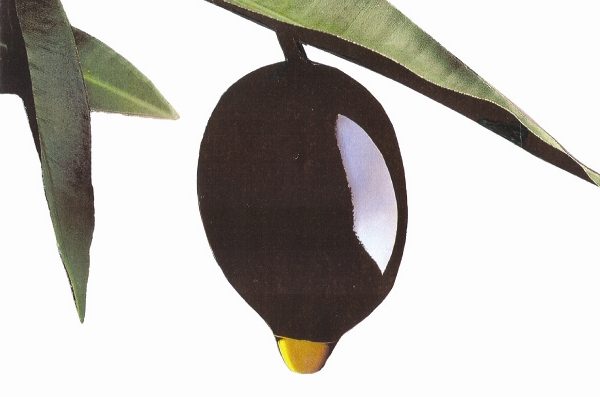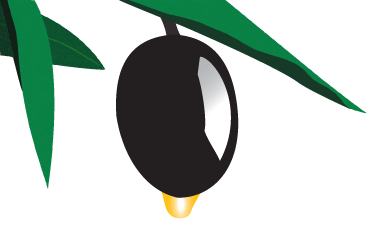Frequently asked questions
About The Company
Yes, with the exception of the sea salt, and our line of soap products. (Our sea salt is harvested from the Greek isles, while our line of soap products is made with our organic extra virgin olive oil.)
Everything we bring from Greece is organically farmed and grown, and certified at the time of harvest and production by DIO Greece. Our extra virgin olive oil and olives are also certified in Canada by British Columbia Association for Regenerative Agriculture or BCARA.
No, there is no basil in our olive oil. Basil Olive Oil Products is named after Basil Koutalianos, the co-owner. That said, all of our products fall under the Golden Olive® brand, and each product is named after the owners’ family member. For instance, Golden Olive Eleni® is our organic extra virgin olive oil named after co-owner Eleni (Helen) Koutalianos. Respectively, our olives, vinegars and soap are named after Basil and Helen’s daughters: Vassiliki or Vicki, Evangeline and Anastasia. It’s truly all in the family!
Yes, but only for retail and restaurant orders. Otherwise, please shop local or buy from our online store. Web orders are shipped using Canada Post.
We offer a full refund (or replacement) on products damaged or lost in transit. Please notify us within three days of receipt of goods, or after a trace has been done via email at sales@basiloliveoil.com.
Basil Olive Oil Products Ltd. guarantees its products and quality; however, we cannot accept returns if you are not satisfied with the taste or application of products as this is subjective and dependent on conditions out of our control. Moreover, we cannot accept food returns as we cannot be responsible for products well past their purchase dates, that have not been stored properly or that have been damaged or rendered unsaleable by the customer.
Returns are only valid upon receiving notification and authorization from Basil Olive Oil Products Ltd. via email, and are only applicable if the products remain unopened and in their original packaging. Furthermore, returned goods must be shipped prepaid by the customer within seven days from the time of purchase. Should you wish to return a product, please provide us with an email outlining your issue and the full purchase price will be refunded upon our satisfaction regarding the claim. The original invoice must be included with the returned goods. Returned items are only accepted if the postage/shipping charges have been fully paid and goods are returned in excellent condition.
About olive oil
Lots of reasons! The products of organic farming are higher in nutritional value and better in taste. No sprays or harmful fertilizers are used, ensuring healthy soils, groundwater and biological diversity among wild grasses, native herbs and wildlife. (Organic farming uses less water than conventional farming practices.) Organic farming also supports countryside development by providing employment opportunities to the farmers and their support staff.
Lots! It is a source of vitamin E and helps the body maintain good cholesterol levels. It’s also good for the stomach (aids in digestion) and fortifies bones by preventing calcium loss. It’s equally high in antioxidants and rich in linoleic and linolenic acids. It protects the skin and the heart and reduces the rate of osteoporosis and other ailments. In short, it tastes good and is good for you!
Not all olive harvest and means of production are the same. Early harvest olive oil or agoureleo (as it’s known in Greek) is produced from collected and pressed unripe (green) olives. This product can be more expensive and hard to find than other oils, since unripe olives produce less oil (due to less water/oil content) and are often handpicked from the tree. Even so, more are finding their bitter taste, extra low acidity and higher antioxidant content are worth the money.
There are many advantages to pressing unripe olives. Gathering fruit early gives the trees a break that leads to high return every year; harvesting early reduces the chance of damage to olives from frost, hail, and similar weather problems, thus reducing farmers’ risks. The excellent nutritional value of early harvest olive oil also acknowledged worldwide. The higher chlorophyll content in unripe olives makes the early harvest oil, greener and richer in healthy polyphenols; in fact, olive oil is the only source of food containing those two powerful antioxidants: polyphenols oleacein and oleocanthal. You can find Greek early harvest extra virgin olive oils in November in the southern Peloponnese.
This rare quality is the royalty of olive oil and is worth more than double the value of extra virgin olive oil. The University of Athens and California Davis conducted a clinical research study to prove the effectiveness of Greek olive oil in human health.
Yes. Unlike wine, olive oil loses its nutritional value and taste as time goes on. Best to eat it within two years from the time it was harvested. Look for a date of harvest on your label to ensure you’re buying a fresh product.
Extra virgin is a category of olive oil. It means the acidity of the fruit—in this case, the olive—is less than 0.8% and is viewed as top grade. Olive oils with acidity between 0.8% and 2.5% are deemed virgin. Anything labelled light or a blend of any kind, has no such distinction. In order to determine whether an oil is extra virgin or virgin, it must undergo chemical analysis in a lab. (Acidity is the measure of an oil’s fatty acid content and an indicator of its quality.)
First press means the olives were pressed only once during production. Commercial facilities have been known to add solvents and extra heat and press the olives multiple times to ensure the greatest yield. These practices, however, do not make for the highest quality product.
Cold-press is a process whereby the olives are pressed during production in the mill with minimum heat added, typically under 30 degrees Celsius. Any higher and the olive oil can be burned for the sake of extracting more oil from the fruit.
Extra virgin. This means the product is of high quality and has low acidity levels. Look for first and cold-press. See whether there is a date of harvest and best before dates. Aim for a single estate origin rather than a blend from various countries. And if you’re after organic, look for a logo from an accredited certifier. That all said, avoid refined and blended oils, as well as anything boasting pure, light or lampante olive oils and cheap olive oils claiming to be extra virgin. Quality and price are at times linked.

